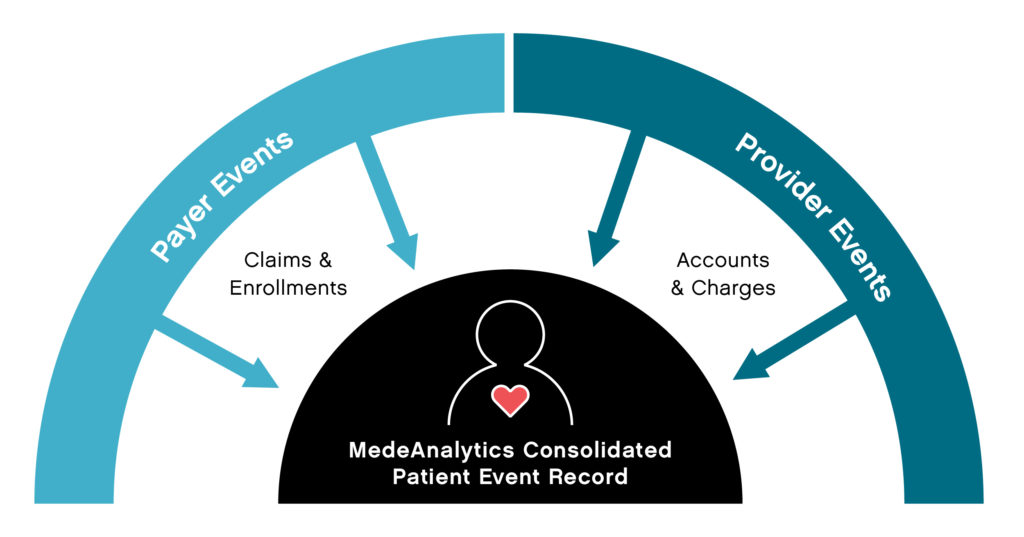
Did you know that a whopping 30% of the world’s data is healthcare related? 1
Every patient has a plethora of data associated with their health record, which can include decades of enrollments, claims, accounts and charges. Much of this data is not housed within the same institutional, facility or provider database and can be cumbersome and time-consuming to pull together, leaving room for reporting and processing errors. Finding ways to aggregate patient data and maintain it in one place is important because it creates the ability to have immediate, actionable insights, which allows payers and providers to make more informed decisions that save time and money and improve patient outcomes.
Yet, payers and providers traditionally maintain their own slices of patient data, which include enrollment and claims for payers and accounts and charges for providers. Some data elements are unique to payers and some to providers, but much of it overlaps, referencing the same patient events. By rolling up all pertinent claims for an event and connecting to the accounts and charges, payer and provider data can be linked to a single patient event record.

Linking data in this way allows for more collaboration and cohesive information sharing between payers and providers. Providers get access to data that extends beyond the walls of their organization. Payers get much more timely and complete information on their members, bypassing claim lag times. The new data relationship makes available a whole new set of patient-centric reports that were not possible before. Patient event reporting, for example, can provide true insights into mortality, readmissions, hospital-acquired conditions, which are especially critical to ACOs, IDNs and payvider (provider-owned health plans) organizations.
Succinct collection of data and timely dissemination of actionable insights is essential to enable efficient communications between doctors, hospitals, Accountable Care Organizations (ACOs) and health plans. When data is connected, you can accelerate universal speed to insights so that both payers and providers can make smarter decisions, reduce costs, increase organizational efficacy and improve patient outcomes. Learn more.
Get our take on industry trends
Go beyond recognition: Use data to take meaningful action this Nurses Week
Since 1994, America has observed National Nurses Week annually from May 6-12. This year more than ever before, it’s critical that healthcare organizations go beyond recognition and start taking action to more effectively support and serve nurses.
Read on...The future of digital health part 3: AI, machine learning and robotics
This post is part three of a new series featuring healthcare visionary and thought leader Andy Dé. In this series, Dé discusses how COVID-19 has triggered remarkable digital transformation and uncovers five, long-term innovation implications that providers, healthcare leaders, and payers need to consider.
Read on...The future of digital health part 2: Digital patient engagement and virtual healthcare delivery
Protecting the health, well-being and safety of healthcare practitioners and first responders is paramount — and will accelerate adoption of Digital Patient Engagement (DPE), enabled by Virtual Healthcare Delivery (VHD) solutions (also known as “Hospital at Home.)”
Read on...You’re asking too much of your EHR
Electronic Health Records (EHRs) are purported to do a lot of things to support healthcare providers, and most of their claims are generally accurate. Of course, like anything, there are many areas where EHR vendors could and should make improvements.
Read on...

